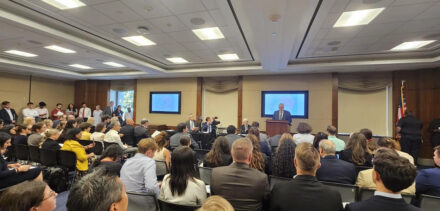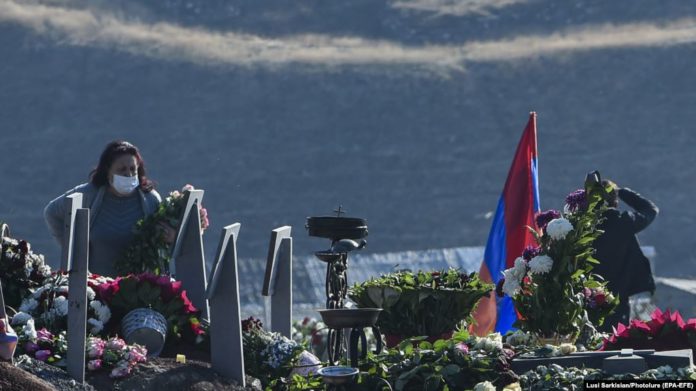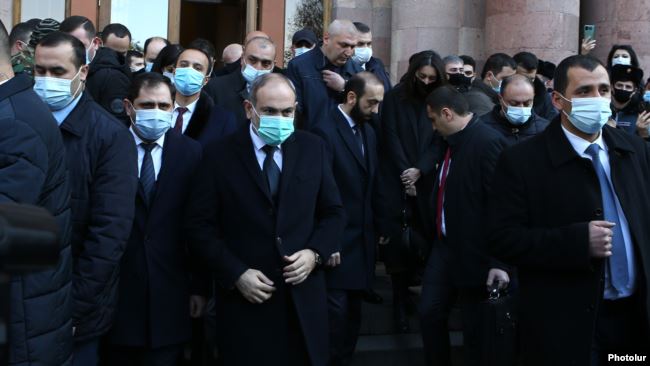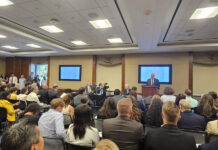YEREVAN (RFE/RL) — Armenia began on Saturday, December 19, an official three-day mourning period for thousands of Armenian soldiers and several dozen civilians killed during the recent war in Nagorno-Karabakh stopped by a Russian-brokered ceasefire.
All flags on public buildings across the country were lowered to half-mast and memorial services will be held in all Armenian churches on Sunday to pay tribute to victims of the six-week war during which the Armenian side suffered massive territorial losses in and around Karabakh.
Thousands of people led by Prime Minister Nikol Pashinyan marched to the Yerablur military cemetery in Yerevan where many of the Armenian soldiers killed during the hostilities were buried.
In a televised address to the nation aired earlier in the day, Pashinyan urged Armenians to join the procession and demonstrate that “we are going to live on” despite the “severe consequences” of the war.
Thousands of other Armenians walked to Yerablur late on Friday. The march was organized by a coalition of opposition parties that blame Pashinyan for Azerbaijan’s victory and demand his resignation.
The precise number of Armenian and Karabakh Armenian soldiers killed in action remains unknown. The Armenian Ministry of Health confirmed earlier this month over 2,800 combat deaths.









